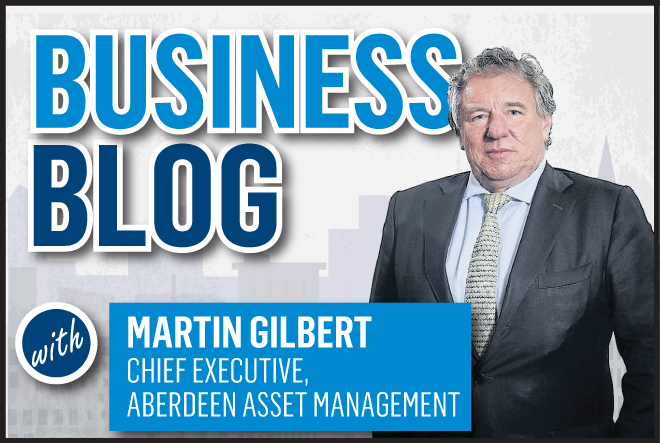Instant gratification is becoming the prevailing instinct of 21st-century life. It’s partly a consequence of galloping technological advance that means so much can be done on the spot, at the click of a mouse or a tap of a smartphone. People have come to expect results within seconds. The actress Carrie Fisher complained that “instant gratification takes too long”.
But this expectation of immediate fulfilment is an unhealthy attitude to bring to the market. Short-termism can lead to economic malaise; some people claim the global financial crisis was caused by a focus on short-term goals at the expense of long-term objectives. The sub-prime mortgage crisis that triggered disaster in the United States would fit that pattern. But not everybody succumbed to short-term thinking: even in the Eurozone there was one exception that proved the rule.
I’m thinking specifically of Germany where I was earlier this month. Of course the economy isn’t entirely problem-free, but it has weathered the difficult climate post-2008 more robustly than other Eurozone economies. While other Eurozone countries were suffering from subdued growth and high unemployment, the German economy continued to forge ahead.
I’ve always believed, whenever markets are struggling, that if someone is bucking the trend and doing better than most, it’s common sense to take a closer look and try to discover why that’s happening. What is Germany doing right that other Eurozone economies are getting wrong? The answer is that the sector most crucial to the German economy is as resolutely long-term in its thinking as it was a generation ago.
That sector is the Mittelstand – Germany’s 3.5 million small to medium-sized businesses which underpin its growth and account for 52% of output. And the reason for these companies’ success isn’t hard to identify: it’s the culture of long-termism that dominates their thinking. The average age of these firms is 70 years, compared with the S&P 500 where the average age is just 15 years. That says a lot about their staying power.
The same stability is reflected in the length of tenure of CEOs in Mittelstand companies where the average is 20 years, compared with Britain and the United States where the hire-and-fire culture has reduced average CEO tenure to 9.9 years. Some Mittelstand CEOs serve for much longer: Glasbau Hahn, maker of glass cabinets for museums, has had just five CEOs over its 180 year history. There are special conditions prevailing in Mittelstand businesses that favour such long-termism. They are often family-run and thoroughly integrated into the local community.
That conservative culture won’t appeal to investors looking for a fast buck, but it is favourable to long-term growth. The so-called “dynastic will” of these companies means the CEO will be determined to pass on the firm, as his legacy to the next generation, in a flourishing state. Long-term investors will reap the benefit. CEOs with a guaranteed long tenure can afford not to get carried away by paranoia surrounding quarterly earnings releases.
These Mittelstand companies also take a pretty conservative attitude to financing. After a bank exacted compensation for late repayment of a loan, early in his career, Hans Riegel, the late CEO of Haribo, refused ever again to borrow money to grow his company: he even turned away Warren Buffett. These firms might not have stellar performance in the short term but, as they’ve recently shown, they can sail through the bad times when others go under and they’ll be around to see the end of the economic cycle – and the next one, and so on.
But while the Germans have maintained their culture of long-termism, the wider investment community is becoming increasingly short-term in its outlook. Back in 1940 the average holding period for a stock was seven years; by 2007 it was down to just seven months. That ended badly, but it seems many investors have not learned the lessons of 2008.
Taken to its extreme, this focus on the short term led to high frequency trading and the flash crash that resulted in $1 trillion being wiped off the value of US stock markets within half an hour. Even in less extreme forms the scourge of short-termism is becoming insidious. As investors’ holding periods trend downwards they focus increasingly on quarterly results, making managements fearful of disappointing expectations. A survey of British CEOs found 80% would rather cut discretionary spending in areas such as research and development than miss a forecast.
Fear of activist shareholders is causing companies to buy back shares instead of investing in long-term projects for the future. Researchers at Stanford University have claimed this trend is holding back US growth by 0.3 % a year. We can’t afford to take an approach that is so corrosive of growth.
Warren Buffett famously said: “Someone is sitting in the shade today because someone planted a tree a long time ago.” Only a long-term approach can deliver stable growth and generate meaningful wealth.
